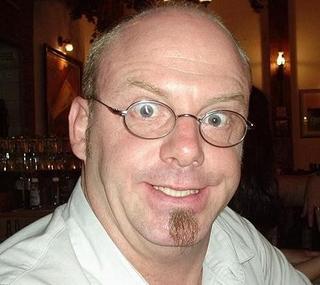RELATIVE PRONOUNS
Relative pronouns are used to introduce an adjective clause. In English, they are who, whom, which, whose, that and Ø (zero). They always refer back to a noun, noun phrase, or a noun clause. In special cases, “where” and “when” can be used as relative pronouns.
e.g. THE PERSON WHO KNOWS MORE ABOUT THIS IS ABSENT.
- “who knows more about this” refers back to the noun phrase “the person”. “This” person is absent. Another person is present, but doesn’t know more about this matter.
e.g. THE PEOPLE WITH WHOM I WORK ARE NOT COMING.
- “with whom I work” refers back to the noun phrase “the people”. “These” people are not coming. Others are coming, but I don’t work with them.
e.g. MY CAR WASN’T RUNNING WELL, WHICH MADE ME HORRIBLY LATE.
- “which made me horribly late” refers back to the noun clause “My car wasn’t running well”. “This” made me horribly late.
e.g. DOGS WHOSE OWNERS LEAVE THEM IN KENNELS FOR HOLIDAYS GET LONELY.
- “whose owners leave them in kennels for holidays” refers back to the noun “dogs”. “These” dogs get lonely. Other dogs do not.
e.g. THE MONEY THAT I SPEND IS MINE.
- “that I spend” refers back to the noun phrase “the money”. “This” money is mine. Other money is not mine.
e.g. I COULDN’T HEAR A WORD Ø YOU SAID.
- “you said” refers back to the noun phrase “a word”. “This” word I could not hear. I could hear other words (from other people).
- This sentence could be different: I couldn’t hear a word “that” you said. The relative pronoun “that” can be absent because it is working as a direct object within the adjective clause.
e.g. SEVERAL BANKS WHERE SIMILAR SCANDALS HAD HAPPENED WERE INVESTIGATED.
- “where similar scandals had happened” refers back to the noun phrase “Several banks”. “These” banks were investigated. Others were not.
- Although “where” is usually an adverbial idea, sometimes it is used to describe (adjective idea) a noun that refers to a place, thus making it work as a normal relative pronoun.
e.g. 1963 IS THE YEAR WHEN J. F. KENNEDY WAS HOT IN DALLAS.
- “when J. F. Kennedy was hot in Dallas” refers back to the noun phrase “the year”. “This” is the year it happened. Not any other year.
- Although “when” is usually an adverbial idea, sometimes it is used to describe (adjective idea) a noun that refers to a time, thus making it work as a normal relative pronoun.
Relative pronouns can act as subjects in the adjective clause.
e.g. THE TELEPHONE THAT IS IN THE BEDROOM IS BROKEN.
- “that” refers back to the noun phrase “the telephone”
- The relative pronoun “that” is working as the subject of the adjective clause “that is in the bedroom”
When relative pronouns work as objects, they may be removed.
e.g. THE TELEPHONE (THAT) YOU BOUGHT IS BROKEN.
- “that” refers back to the noun phrase “the telephone”
- “that” represents the direct object of the transitive verb “bought”. The verb “buy” is an MTV that requires an object. Therefore, you bought “that” (the telephone).


1 Comments:
Thanks for finally writing about > "RELATIVE PRONOUNS" < Liked it!
Check out my web-site :: advanced
seo training
6:03 PM
Post a Comment
<< Home